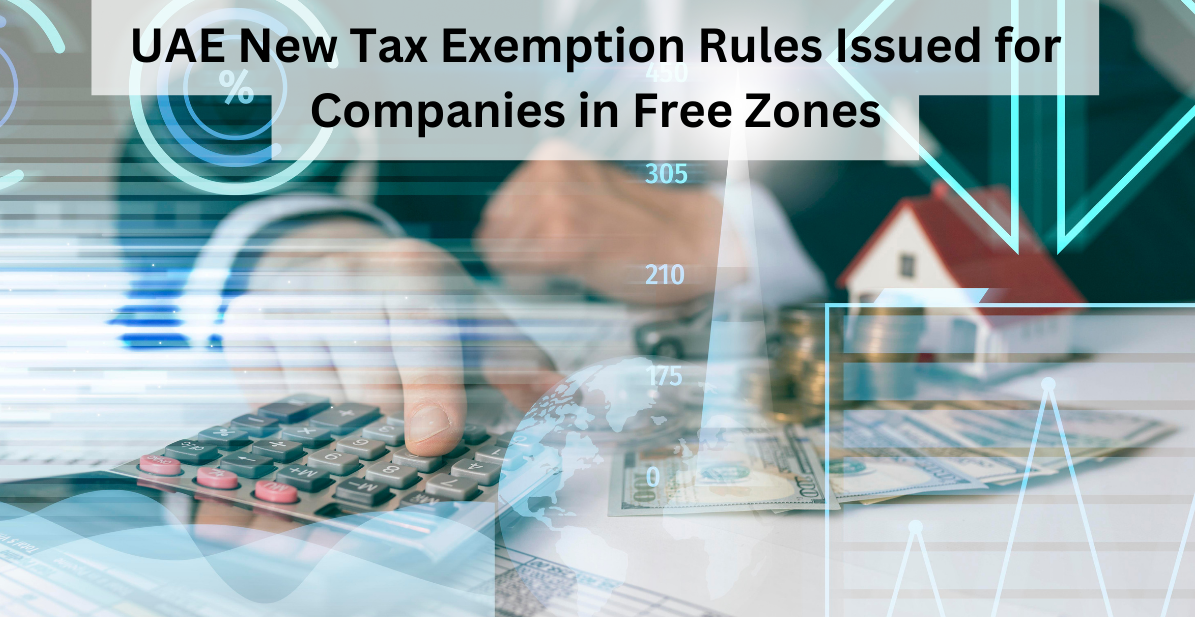Cabinet Decision No. 100 of 2023 and Ministerial Decision No. 265 of 2023. These decisions indeed aim to improve and broaden UAE corporate tax exemptions to align with global norms, particularly the OECD’s guidelines.
Overview of the New Rules
New laws define eligible revenue and activities for the 0% corporate tax rate, set strict content standards, and identify tax-exempt activities.
Qualifying Income and Activities
Qualifying Income:
The inclusion of profits from the ownership or utilization of qualifying intellectual property (IP) is correct. However, it explicitly excludes marketing-related IP which is in alignment with global tax norms like trademarks. The aim is to prevent abuse through IP holding structures.
Qualifying Activities:
- The scope of qualifying activities is expanded to include trading of qualifying commodities, investment holdings (shares and securities held for at least 12 months), distributing products within Designated Zones, and manufacturing activities
- These clarifications are intended to ensure that businesses doing substantial economic activities within the Free Zones can benefit from the 0% corporate tax rate
Substance Requirements
Substantial Business Activity:
- Companies can demonstrate substantial business activity within the Free Zone, which involves maintaining a sufficient number of full-time employees, having physical premises, and incurring operational expenditures.
- The outsourcing must be under supervision, particularly for IP-related activities, which aligns with global standards to ensure economic substance.
Excluded Activities
Activities Subject to 9% Corporate Tax
Transactions involving immovable property with non-Free Zone entities, profits from non-Free Zone permanent establishments. Also, it includes activities like banking, insurance, finance, leasing, and exploitation of oil rights are excluded from the 0% tax rate and subject to the standard corporate tax rate of 9%.
Compliance and Documentation
Documentation Requirements
Free Zone entities must maintain accurate books, comply with transfer pricing rules, and document their compliance with substance requirements. Also, non-compliance could result in the loss of the 0% tax rate for up to five tax periods.
Strategic Implications for Businesses
- Business Structure Review: Companies should assess and potentially reorganize their business structures to meet the new requirements.
- Investment in Qualifying Activities: Increasing investment in activities that qualify for the 0% tax rate, such as R&D for IP revenue, is advisable.
- Documentation and Compliance: Maintaining thorough records and adhering to substance regulations is crucial to avoid disqualification.
Benefits of the Updated Free Zone Tax Regime
Economic and Compliance Goals:
- The updated regime supports the UAE’s economic objectives and compliance with international tax standards, including the OECD‘s Pillar Two framework.
- By maintaining an attractive tax policy for Free Zones, the UAE aims to attract multinational enterprises and stimulate economic growth.
Transition and Implementation
Preparation and Compliance: Companies need to carefully prepare for the transition to the new regulations. Hence, consulting with tax professionals is recommended to understand and comply with the new requirements and maximize tax savings.
Conclusion
The new tax exemption provisions for Free Zone enterprises represent a significant shift in UAE tax policy. Also, the changes are to ensure compliance with international standards while maintaining the UAE’s competitive business environment. For more details, reach out to us www.bizvirtue.ae | info@bizvirtue.ae | +971 45 70 9205 | +971 54 793 5540.





